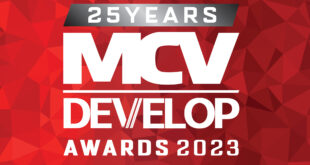Well that was an interesting year. According to most commentators, not the best in terms of marquee games, but, as ever, plenty of evidence in the games we did get that the industry is as creative and forward-looking as ever. If nothing else, 2023 will be every bit as fascinating when we come to look back on it.
It wasn’t just about the games of course. Events were back in a big way (apart from E3 of course), NFTs went away just as spectacularly, and we had the year-long soap opera of Microsoft and Sony’s custody battle over Activision Blizzard. How those played out from a comms perspective and what will shape the PR challenges in the year ahead is the subject of this month’s panel. Next up is Rana Rahman from Raptor PR. Enjoy!
It’s fair to say that 2022 wasn’t the greatest year for quality releases or launches… or was it?
Looking at the games industry in its entirety, I think we were still spoilt for choice. The games industry is more than AA or AAA – mobile generates a majority of the revenue and dominates in terms of the scale of its player base. Yes, AAA saw a shortage due to console supply chain issues, and development delays due to the pandemic hangover, but overall I’d say it was a solid year for gaming content.
E3 aside, it was a full house for live events last year. How do you see expos, conferences and other game events panning out this year?
It’ll be business as usual for events this year. Events are great for building existing relationships, a bit of business development, and brand awareness. But I think, post-pandemic, many of us now realise that we can conduct business and network virtually, with similar if not better results. Of course different companies and personalities will enjoy different ways of doing things, but it’s the digital realm which generates the greatest ROI for Raptor PR.
How else did the PR landscape change during 2022?
The comms industry has been going through a transition over the last decade, as it’s been an industry pretty much devoid of diversity. Things seem to be changing, with a few welcome initiatives from organisations such as the CIPR and PRCA. Also, historically, interns have been the slave labour force in the comms industry, where only the privileged can actually afford to intern. There has been a welcome initiative from the PRCA last year, with a charter to ensure interns are paid a fair wage, and end the practice of unpaid internships.
Microsoft’s acquisition of Activision Blizzard dominated thinking in 2022. What’s your take? How well did Microsoft and Sony make their respective casse? Will the deal go through, and what will it mean for the industry in the years ahead?
Neither of them made any friends. Sony in particular somehow managed to turn itself from a supremely dominant games industry brand to a panicky and plaintive one. I and pretty much everyone at Raptor plays CoD, but goodness me … it’s not that good. I think the deal will go through with some concessions and guarantees on the part of Microsoft.
There were some spectacular U-turns earlier in the year as gaming companies climbed aboard the NFT hype train, before jumping off again before the next stop. What went wrong for them?
It was all to be expected: we’re seeing the predicted hype curve play out in front of our peepers. The bubble needed to burst in order to shed the shysters. Web3 technology is no different to any other potentially disruptive technology, and I had lots of deja vu with my formative dotcom PR days from 2001.
At this moment in time, the web3 gaming industry is in what’s called the ‘trough of disillusionment’, with an upturn expected into adoption. A number of existing games industry brands fumbled their comms strategies, because players are not ready yet. The games are not here yet. ‘Gen 1’ web3 games like Axie Infinity were test vehicles with scrappy gameplay and unsustainable economies, but exploded during lockdown, chiefly in southeast Asia.
The ‘proper’ web3 games made by experienced games industry people are in development right now, from both scores of indies, AAs and AAAs, working on new games which are experimenting on ways to create fun elements which can only be powered by web3 tech. With the benefit of significant tech PR experience, I’m pragmatic but positive about the potential of web3 gaming. It could transform gaming, and totally shift the power dynamics in the entire games industry, meaning the FAANGs no longer hold most of the revenues and our data.
The Oxford word of the year for 2022 was Goblin Mode. What was yours and why?
Metaverse. The games industry is the architect of the nascent metaverse.
Without blowing your own trumpet too loudly, what was your highlight of the last year (2022) in terms of the PR campaigns that were waged?
The Coda Labs Global Web3 Gamer Study. Our client wanted to find what wtf gamers think of web3 gaming, across each continent, across every popular gaming platform. A data driven strategy to unearth, warts and all, of what regular folk think of it. What’s most important is the industry debates potential disruptive technologies, rather than pretend they’re not happening.
What are the PR challenges for the year ahead and how will you be preparing to overcome them?
There is an incoming global recession which will impact most industries, and even gaming. Raptor itself is positioned squarely in b2b (for the moment), and we have wide addressable markets which we can service: massive tech ecosystems which are underserved by the gaming comms industry. It’s an absolute no-brainer to continue to be curious, and get excited about ‘the next big thing around the corner’, like quantum computing and AI.
AI is threatening to change the way content is created and received (ChatGPT does a pretty good press release). What are the issues for PR as AI content services become increasingly competent and compelling?
As mentioned above, this is an emergent technology, and a potential opportunity for comms pros to harness. AI is yet another tool to leverage. For example, with the advent of CGI, stop motion animators like the legendary Phil Tippett initially got depressed about the fear of getting zero work.
But he had the skill and experience about animation, and translated his work into CGI animation. With tactical outputs like copy content creation, I believe comms and marketing teams can scale up our outputs, but it will still take a trained and experienced consultant to train AIs, and conduct post AI production proofing and editing.

 MCV/DEVELOP News, events, research and jobs from the games industry
MCV/DEVELOP News, events, research and jobs from the games industry




